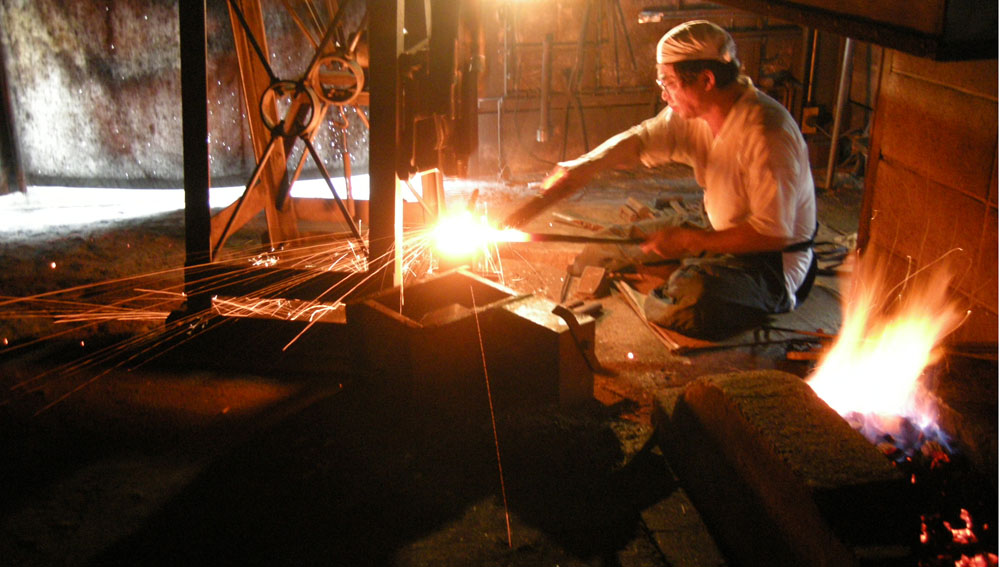It’s not unusual to come across the term ‘tanren’ (鍛錬) in Japanese budo. It’s used in lots of arts to refer to the idea of hard or earnest training.
Bujinkan students usually come across it in the context of the phrase ‘atemi no tanren’ which is used to mean conditioning the fists for striking training. There is a section on Hatsumi Soke’s Koto Ryu Koppojutsu DVD which looks at drills used to toughen the fists under the name Atemi no Tanren.
Originally though, tanren was a term found in connection with sword making. In that context, it is used to describe the forging process. A swordsmith takes smelted iron of different levels of carbon-purity, heats it, hammers it and folds it to strengthen it and remove impurities. This is the tanren process, and it’s essential to the construction of a true nihonto, or Japanese blade. A swordsmith with a good reputation will attract apprentices who wish to study with him and normally will use a small hammer to point out where pressure should be applied, and the apprentices will swing the heavy hammers used for tanren. But a recently qualified swordsmith may not have any apprentices and so may use machine hammers. The old meets the new.
The term tanren can be broken down into two kanji - tan (鍛) means to forge, discipline or train, while ren (錬) means to temper, refine, train, drill or polish. In the context of martial arts, it’s easy to see why this metaphor was applied to the process of learning a skill and then drilling it over and over until any extraneous movement or bad habits were removed.
However, not all training can be called tanren – only training that involves significant effort.
It’s generally not possible for beginners to train in this way, because to truly refine a movement or skillset, you need to know enough about what you’re doing to know if you’re doing it correctly or not. Drilling isn’t enough. Sometimes people say practice makes perfect but actually this is quite untrue. Only perfect practice makes perfect.
In fact, it’s more accurate to say practice makes permanent. So you need to be sure that when you undertake tanren-type training that you’re sure that you’re practicing correctly. It is for this reason that having a life long relationship with the basics of our arts is so important. As we become more experienced and better educated in our arts, we can discern more clearly what should be practiced and how.
(Picture above of smith Manabe Sumihira performing tanren, taken from here)

